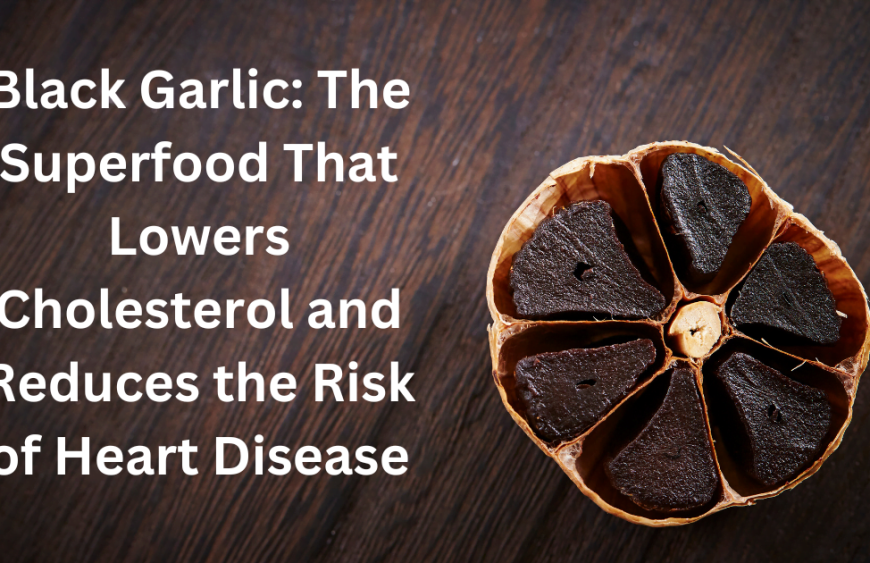Black Garlic: The Superfood That Lowers Cholesterol and Reduces the Risk of Heart Disease

Black garlic, revered for its unique taste and potential health benefits, has gained attention as a superfood. Among its various reported advantages, there is evidence to suggest that black garlic may contribute to lower cholesterol levels and a reduced risk of heart disease. Here’s an exploration of the relationship between black garlic and cardiovascular health:
Nutrient Composition:
- Allicin Content:
- Black garlic is rich in allicin, a compound also found in fresh garlic. Allicin has been associated with potential cardiovascular benefits, including the reduction of cholesterol levels.
- Antioxidants:
- The fermentation process that transforms fresh garlic into black garlic enhances its antioxidant content. Antioxidants help combat oxidative stress and inflammation, factors linked to heart disease.
Cardiovascular Health Benefits:
- Cholesterol Regulation:
- Some studies suggest that compounds in garlic, including allicin, may help regulate cholesterol levels. They may reduce total cholesterol and LDL cholesterol (commonly referred to as “bad” cholesterol) while potentially increasing HDL cholesterol (“good” cholesterol).
- Blood Pressure Management:
- Allicin and other bioactive compounds in garlic have been investigated for their potential to help manage blood pressure. Maintaining healthy blood pressure is crucial for cardiovascular well-being.
- Anti-Inflammatory Effects:
- Chronic inflammation is a contributing factor to heart disease. The antioxidants and anti-inflammatory properties in black garlic may play a role in reducing inflammation and supporting heart health.
Usage Recommendations:
- Dietary Incorporation:
- Include black garlic in your diet as a flavorful and nutritious addition. Use it in various dishes, such as stir-fries, sauces, dressings, or even as a spread.
- Balanced Diet:
- While black garlic may offer potential cardiovascular benefits, it is essential to maintain a balanced diet rich in diverse nutrients. Incorporate a variety of fruits, vegetables, whole grains, and lean proteins for overall heart health.
- Consultation with Healthcare Professionals:
- Individuals with existing heart conditions or those on medication should consult healthcare professionals before making significant dietary changes or incorporating supplements.
Conclusion:
While research suggests that black garlic may have cardiovascular benefits, it’s important to note that individual responses can vary. Additionally, black garlic should be part of a comprehensive approach to heart health, including a balanced diet, regular exercise, and other heart-healthy lifestyle practices. Always seek advice from healthcare professionals for personalized recommendations based on your health status and goals.
Related Articles
Categories
Recent Comments
Recent Posts
Tags
A2 milk Aged garlic Anti-inflammatory Ayurvedic medicine Bilona method Black garlic bread Black garlic chicken Black garlic extract Black garlic hummus Black garlic mayonnaise Black garlic oil Black garlic paste Black garlic powder Black garlic recipes Black garlic salt Black garlic seasoning Black garlic shrimp Black garlic steak Black garlic supplements Black garlic tofu Black garlic vinegar Butyric acid Conjugated linoleic acid (CLA) Cooking oil alternative Digestive health Fat-soluble vitamins Fermented garlic Gir cow Grass-fed cows Gut bacteria Health benefits Health benefits of black garlic Natural ghee Nutritious fat Omega-6 fatty acid Organic ghee Pure butterfat Pure ghee Rich flavour Roasted garlic Spread alternative Sweet garlic Traditional churning method Traditional Indian ghee Umami flavour




